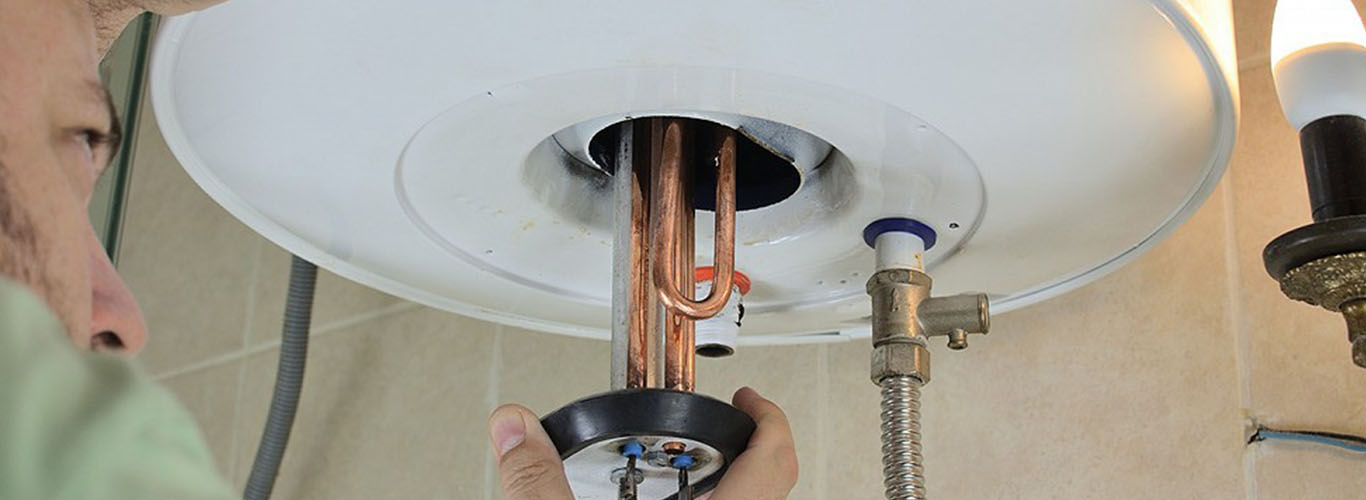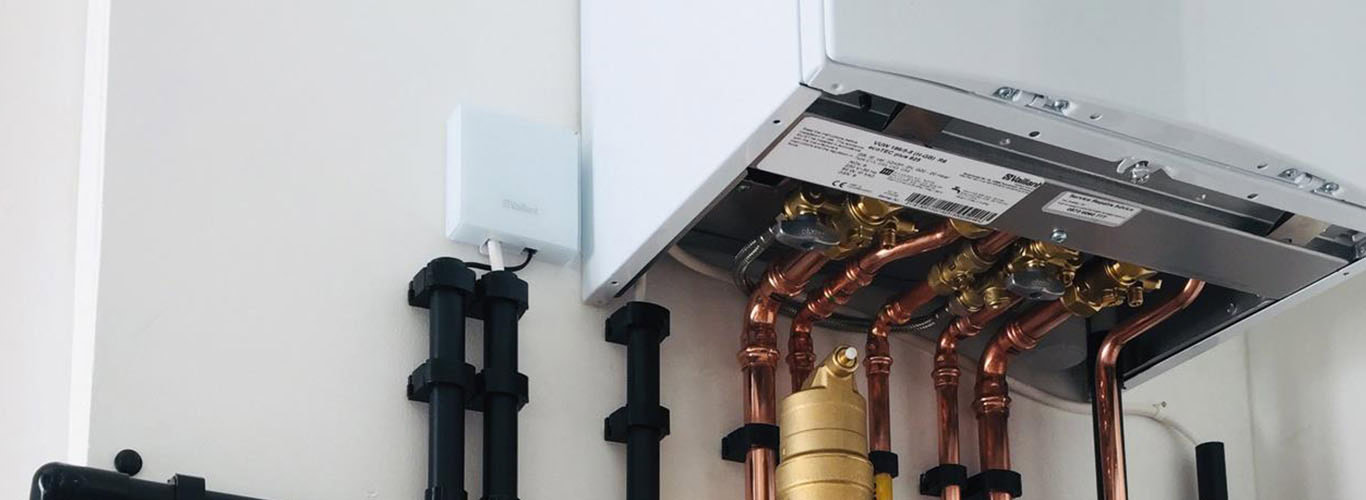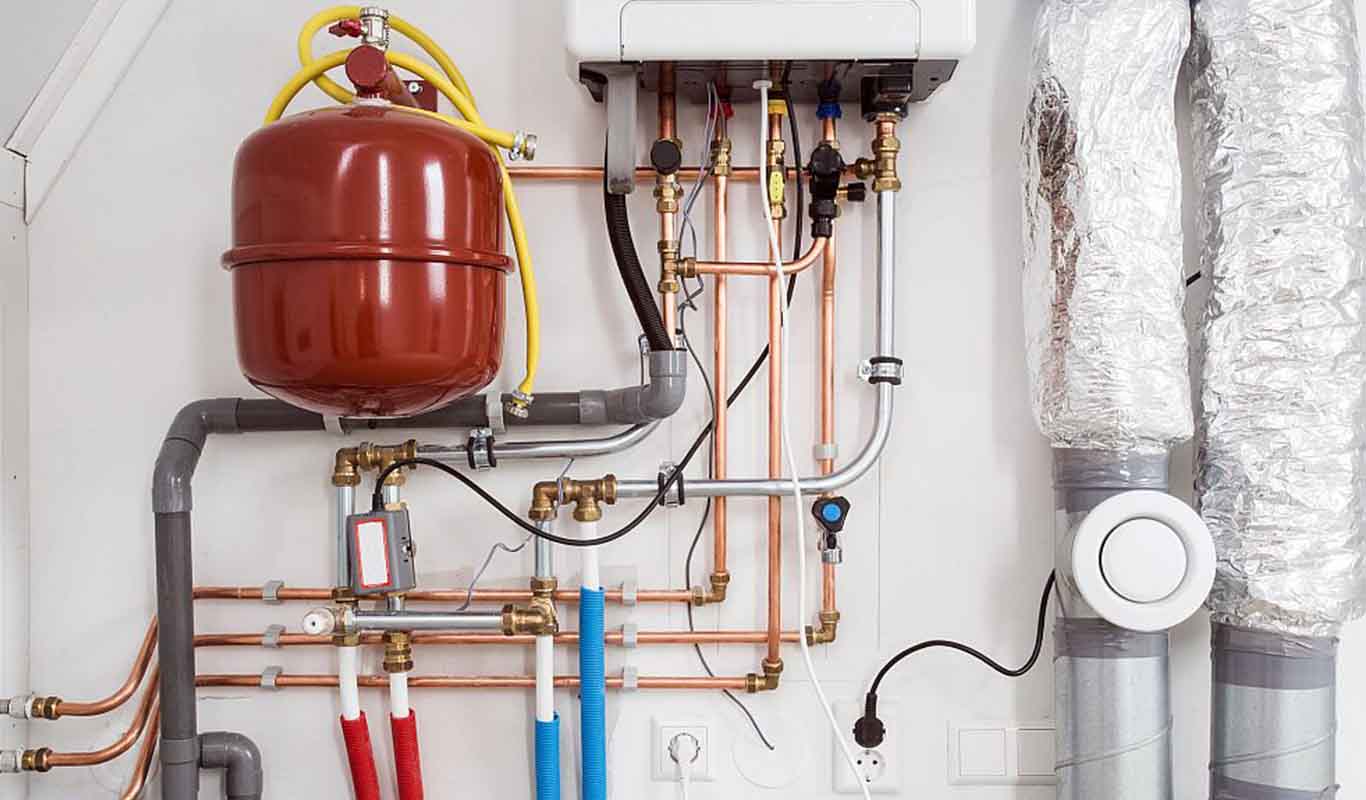An overheating boiler is a serious issue that can lead to system damage, leaks, or even boiler breakdown. If your boiler is overheating, you may notice loud banging noises, excessive pressure, or the system shutting down as a safety measure. Understanding the causes and solutions can prevent costly repairs and improve system efficiency.
Common Causes of Boiler Overheating & How to Fix Them
1. Blocked or Faulty Pump (Water Not Circulating Properly)
If the central heating pump is blocked or malfunctioning, hot water cannot circulate properly, causing the boiler to overheat and shut down.
✅ Fix:
-
Check if the pump is running (listen for a low hum).
-
Bleed the pump to remove trapped air.
-
If the pump is clogged with sludge or limescale, it may need a power flush or replacement.

2. Limescale Buildup (Common in Hard Water Areas)
Limescale buildup inside the heat exchanger reduces water flow, leading to hot spots and overheating.
✅ Fix:
-
Flush the system with descaler or power flush treatment.
-
Install a magnetic filter to prevent future buildup.
-
Use water softeners in areas with hard water.
3. Faulty Thermostat (Incorrect Temperature Readings)
If the thermostat is broken or incorrectly calibrated, the boiler may overheat because it doesn’t know when to stop heating the water.
✅ Fix:
-
Check if the thermostat is set too high.
-
Reset or replace a faulty thermostat.
-
Upgrade to a smart thermostat for better control.
4. Low Water Pressure (Insufficient Water in the System)
Low water levels cause the boiler to overheat because there isn’t enough water to absorb the heat.
✅ Fix:
-
Check the pressure gauge (should be between 1-2 bar).
-
If pressure is too low, repressurize the system using the filling loop.
-
Look for leaks in pipes, radiators, or the boiler itself.
5. Blocked Heat Exchanger (Water Cannot Flow Efficiently)
A clogged heat exchanger leads to poor heat transfer, causing the boiler to overheat.
✅ Fix:
-
A power flush can remove blockages.
-
Replace the heat exchanger if corrosion is too severe.

6. Faulty Pressure Relief Valve (Boiler Can’t Release Excess Pressure)
The pressure relief valve (PRV) prevents overheating by releasing excess pressure. If it fails, the boiler can become dangerously hot.
✅ Fix:
-
Check for leaks around the PRV.
-
Replace the valve if it’s damaged.
7. Faulty Temperature Sensor (Boiler Can’t Regulate Heat Properly)
A damaged temperature sensor may misread the water temperature, causing the boiler to overheat.
✅ Fix:
-
Replace the faulty sensor with a new one.
What to Do if Your Boiler Is Overheating?
🚨 Immediate Steps:
-
Turn off the boiler immediately to prevent further damage.
-
Check the pressure gauge—if it’s too high, try bleeding a radiator to reduce pressure.
-
Feel the pipes and radiators—if they are extremely hot, don’t touch them further.
-
Call a Gas Safe Engineer for an inspection if you’re unsure.
How to Prevent Boiler Overheating in the Future
🔹 Annual Boiler Servicing – Professional checks help catch problems early.
🔹 Power Flushing – Removes sludge, rust, and limescale buildup.
🔹 Install a Magnetic Filter – Traps rust particles and debris.
🔹 Monitor Boiler Pressure – Keep it between 1-2 bar.
🔹 Use a Smart Thermostat – Helps prevent overheating with precise temperature control.
Boiler Overheating Repair in North & West London
At A&C Heating and Plumbing Ltd., we provide:
✅ Emergency Boiler Repairs – 24/7 service for overheating issues
✅ Boiler Maintenance & Servicing – Preventive care to avoid future breakdowns
✅ Power Flushing & Descaling – Clears blockages and improves efficiency
✅ Pump & Valve Repairs – Fixes faulty circulation and pressure issues
📍 North London Service Areas:
🏠 Barnet – Finchley, Edgware, Golders Green, Hendon
🏠 Haringey – Tottenham, Wood Green, Crouch End, Muswell Hill
🏠 Camden – Kentish Town, Hampstead, Belsize Park
🏠 Islington – Highbury, Holloway, Archway
🏠 Enfield – Palmers Green, Southgate, Winchmore Hill
📍 West London Service Areas:
🏠 Ealing – Acton, Hanwell, Perivale
🏠 Brent – Wembley, Willesden, Harlesden
🏠 Hammersmith & Fulham – Shepherd’s Bush, Parsons Green
🏠 Kensington & Chelsea – Notting Hill, Earl’s Court
🏠 Hounslow – Chiswick, Isleworth, Brentford
Book a Boiler Repair Today!
📞 Call us now: 0779 559 5757

